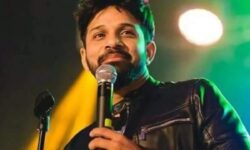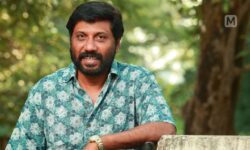NEW DELHI:
Stories from faraway lands like Japan, China and Mongolia as well as from inside India were the focus of a bunch of storytellers who took turns to take children and adults alike on imaginary trips, they are unlikely to forget anytime soon.
The sixth edition of the Kathakar – International Storytellers Festival, a three-day event which began at the Indira Gandhi National Centre for the Arts (IGNCA) here, opened with a narrative on the life of Pandit Deen Dayal Upadhyaha, concentrating on his actions as a child.
On day one, storytellers from Japan used traditional Kamishibai ‘paper theatre’, to narrate popular Japanese tales to an audience of schoolchildren.
Dressed in their country’s native costumes — Yukata, a traditional Japanese summer dress; kim onos; and Hakama, a kimono in a trouser style — the Spice Arthur 702 troupe regaled the audience with oral storytelling accompanied with hundreds of picture book images and music.
onos; and Hakama, a kimono in a trouser style — the Spice Arthur 702 troupe regaled the audience with oral storytelling accompanied with hundreds of picture book images and music.
Three performers took to the stage to enact the 12th century theatre style from Japan, with the narrator recreating stories of Issun Samurai- an old Japanese fairy tale. A dash of sci-fi was added to the mix with a narration of a Star Wars saga, using Japanese music and singing. They rounded off their performance with the story of Hikkyaku Hana-chan, featuring a Japanese Maharajah.
Flying pictures, loud and realistic sounds, and music and singing accompanied the Japanese performance.
“I use a combination of Manga (comics) with pastel crayons to create the images that go into the story. Often it takes me more than a month to create 200 images for one story,” said Pyonky, the artist who handles the paper during the show. A narrator narrates the story using voice effects, while Pyonky manages the paper and a musician provides the music.
A shadow puppetry troupe from Kerala enacted a portion of the Kamba Ramayana via the ritualistic art form of ‘Tholpavakuthu’
“Although we have performed in Delhi before, this is the first time were did a daytime perfomance. Usually the tholpavakutthu is done using leather puppets which cast shadows from behind a dark background screen,” said K Vishwanatha Pulavar of the Tholpavakuthu Sangam.
Sarah Rundle, a professional storyteller from the UK used no props and relied on her voice and animated gestures to narrate stories from the Silk Route. Those included the story about a “boy who drew cats” and another one from China about a woman and her pig, where she got the audience to sing along with her.
“I absolutely love to tell stories. This is the second time I am performing at Kathakar. Children are the same everywhere; give them a good story and they are hooked,” said Sarah.
Kathakar runs for three days in Delhi before moving on to Mumbai and Bengaluru.
in Delhi before moving on to Mumbai and Bengaluru.
“With every edition, the festival is getting better. This is the first time we are featuring a Japanese group. When it began the idea was to showcase the traditions of storytelling in all cultures and civilisations including contemporary stories. India is also known as a land of stories and what better than to showcase its diverse stories,” IGNCA Programme Director Mangalam Swaminathan said.
She said this year the festival, a collaboration with the NGO Nivesh, is being expanded to Bengaluru for the first time.
Highlights of the festival over the next two days include a ‘Qissebazi’ by poet-actor Danish Husain from Mumbai and Jatak Katha age-old folk tales from Rajasthan by Delhi-based contemporary storyteller Jaishree Sethi. There is a panel discussion on the ‘Contemporising Stories’ on Saturday.
Additional performers at Kathakar include Namesh Bhardwaj, Shaarvari Somayagi and the students of Swamy Vivekananda Education Society from India, Gilles Abbot, from UK whose work is rooted in Viking and Celtic myth and Katy Cawkwell also from the UK whose work has included appearances at Royal Opera House and the British Museum beside international festivals.
While morning sessions are exclusively marked for school students and need to be pre-booked, those in the evening are open to the public. Entry is free and seating is on a first-come- first-served basis.
“We usually hold festivals all across the country where we invite authors from various countries to come to India. Nowadays children rarely live with their grandparents and such oral storytelling is on the decline. We hope that children get to listen to a range of stories across different cultures. It is an attempt to open the world and imagination to the children especially the underprivileged,” said Prarthana Bisht from Ghummakkad Narain, one of the organisers of the festival.
Misako Futsuki, Director of Arts & Cultural Exchange, The Japan Foundation, adds, “We are very happy to invite Spice Arthur since we hardly have a chance to invite a storytelling group from Japan. We have traditional storytelling in Japan, although it’s disappearing in this fast changing world. Spice Arthur is trying to make it more lively and exciting with their original interesting way of storytelling. It’s rapid, rhythmical and entertaining with interesting stories. I’m sure, people in India will love them!”
Another first is the festival’s partnership with BookASmile who are the Supporting Partners for th e festival. Farzana Cama Balpande, Head- BookASmile said, “Listening to stories is such an integral part of childhood. In the days before screen media overtook our imaginations, we depended on stories narrated by our parents, grandparents or relatives. This indigenous art gave depth and dimension to our thoughts as we grew up. BookASmile is delighted to support Kathakar in their endeavour to take enriching stories to children across Delhi, Bangalore and Mumbai.”
e festival. Farzana Cama Balpande, Head- BookASmile said, “Listening to stories is such an integral part of childhood. In the days before screen media overtook our imaginations, we depended on stories narrated by our parents, grandparents or relatives. This indigenous art gave depth and dimension to our thoughts as we grew up. BookASmile is delighted to support Kathakar in their endeavour to take enriching stories to children across Delhi, Bangalore and Mumbai.”
Storyteller Katy Cawkwell said, “For me, it’s a great opportunity to visit India for the first time and share my stories more widely. New audiences always mean I find something new in the material myself and I am curious to find out what will emerge. I am also excited about coming to the Kathakar festival and hearing storytellers from other countries: international festivals are often rich sources of inspiration for my own work.” “This is my first time at Kathakar, but I have heard from other UK storytellers how the audiences are much more enthusiastic participants in the story, so I have chosen stories where there is an element of this,” she said.
The festival aims to support the government of India’s Right To Education Act which mandates reading and libraries for all schools. The idea for the festival is to travel to children and areas where they do not have access to books, stories and reading. The festival works with private as well as state government schools including the municipal and state government schools as well as NGOs. Books are also donated to schools to start class libraries where there are none.
The festival so far has been addressed by the likes of (Late) Dr. APJ Abdul Kalam, Dr. Shashi Tharoor, Margaret Alva, Sunil Shastri, Mohit Chauhan, Nandita Das, Sushma Seth, Emily Gravett, Joanne Blake, TUUP, Joseph Baele, Xanthe Gresham, among others. The main organizers of the festival are the NGOs Nivesh and HHACH.
Kathakar will be in Bengaluru on November 14 and it will travel to Mumbai on November 17.




